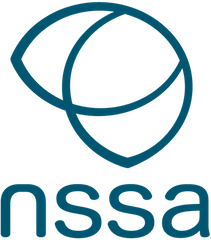A View From the Other Side: My Experience Working in Neurophysiology Research
Like many of my friends and colleagues working in Neurophysiology, my career began working in a clinical environment. It is where I was trained and gained the majority of my skills and experience. In late 2019, I moved to Canada, where an interesting opportunity was offered to me within the research sector, I have built on these foundations and it has shown me a whole other side to Neurophysiology.
I have been working as Clinical Technologist for research groups of the Montreal Neurological Institute (MNI) that perform advanced testing in epilepsy and sleep that incorporate EEG. It has been my primary role to perform, refine or develop new protocols for EEG-combined modalities.
Along with learning a new EEG system, I have had to grasp the concepts of polysomnography, magnetoencephalography, functional magnetic resonance imaging and functional near-infrared spectroscopy. I was then expected to set up the EEG, install any additional electrodes, probes or equipment needed for the test, and be present throughout acquisitions to monitor quality and care for the patient.
This challenging learning curve was increased by the autonomy of the role. I have been able to call on the senior technologists at the MNI, principal investigators (PIs), and research staff to help, but ultimately, I was expected to be the expert and responsible for the success of the studies.
With this autonomy also came opportunities for growth. I was trusted to choose, source, and test my own products and consumables, perform installations with company and hospital IT representatives, collaborate with biomedical engineering to have custom equipment made, coordinate with clinical teams to access their patients and use their facilities. I have always been someone that enjoyed the comfort of working in a team, so this was a new challenge for me which pushed me to be more self-confident.
Working in research also meant that my day-to-day became much more variable than in my previous clinical practice. Some days were spent mainly doing data management, helping students with their projects, ordering equipment and updating protocols, while others were lab meetings and journal clubs or preparing for upcoming studies, setting up and performing tests. With no fixed hours and working from multiple different sites, I organise my own time and tests are scheduled according to my preferences.
I have felt very appreciated in research. Most research groups will have their students setting up their own tests and working with patients, so I have had overwhelming positive feedback from PIs that having someone with experience in this role allows for faster and higher quality tests, has allowed us to improve many of the pre-existing protocols, and they are more comfortable having patients under the supervision of clinically-trained staff. The clinical staff have also expressed their relief to have someone to do these tests so they are free to continue their work.
I chose to share my experience as I had not seriously considered a research role until I found myself in one through an unusual set of circumstances. I thought research would be exciting, but potentially not as impactful or rewarding as working in clinical. Now I see that they have the same common goal, better patient care. Many of the patients I see will have the information from their research high-density EEG, or the EEG-fMRI considered in their presurgical evaluation, and I have attended comprehensive epilepsy conferences at which our research data played a key role in the ultimate management decision. Our research aims to develop these new modalities so that they can become more clinically useful and will hopefully eventually be recognized as standard of care. Research is what will keep Neurophysiology relevant and evolving.
I loved and had always planned to stay in clinical; however, sometimes unexpected opportunities arise which can be just as fulfilling and enjoyable. Neurophysiology is an exciting field to be in and the chance to work in research has shown me a little bit of what the field might become in the future.
Written by Erica Minato
Clinical Technician for the Anphy Lab

